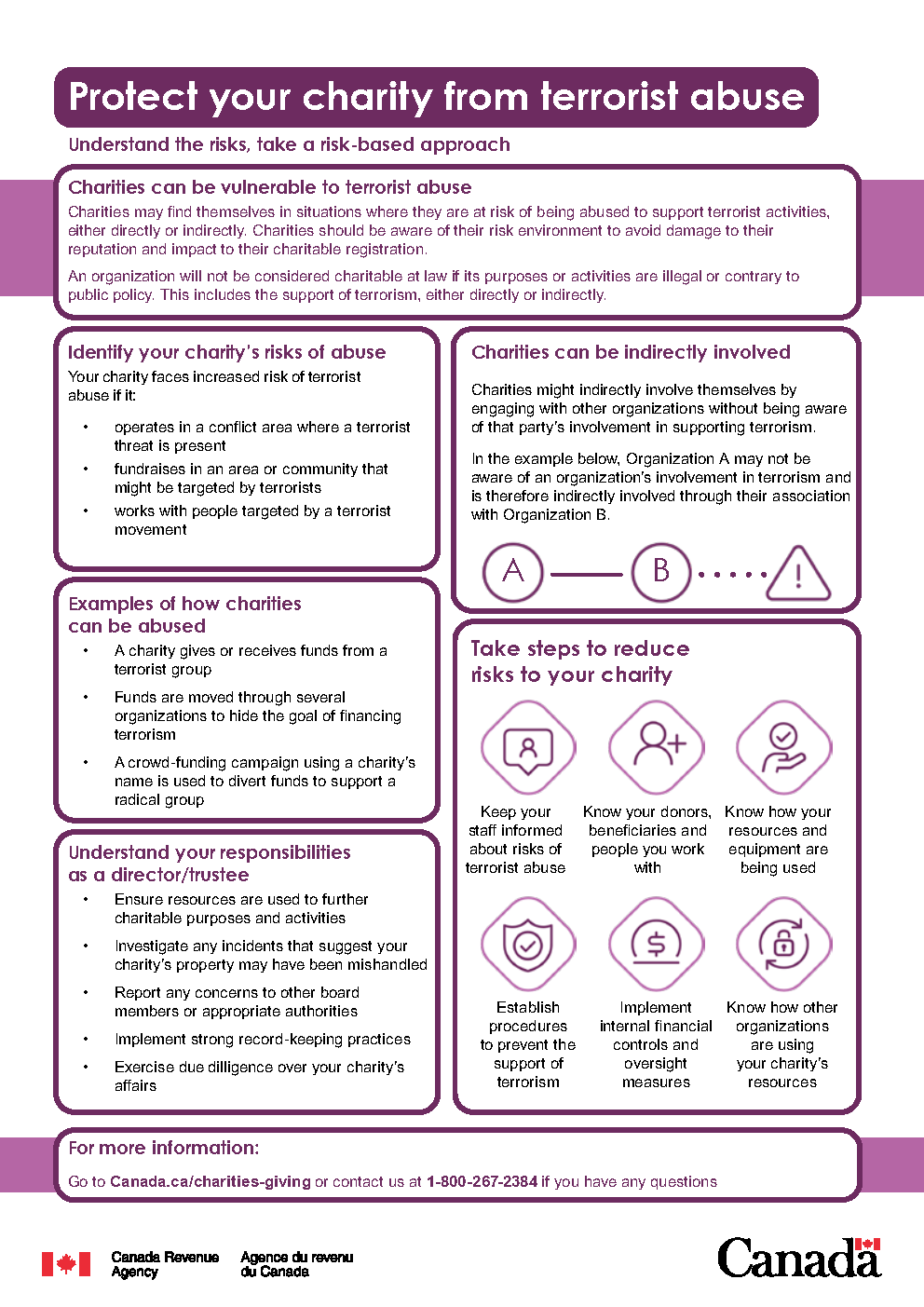Educating charities about the risks of terrorist abuse
In Canada and abroad, terrorists have abused charities by involving them without their knowledge in supporting terrorist activities. Use the resources on these pages to help your charity and its directors:
- understand how terrorists can abuse your charity’s good work
- identify risks that relate to your charity
- reduce your charity’s risk
- understand and comply with your charity’s obligations under the Income Tax Act
The charitable sector is diverse, and the risks of vulnerability to terrorist abuse vary from charity to charity. These risks can also change over the life of a charity as its purposes or activities change.
While terrorism may affect only a small number of charities, the risk is real. Terrorism can damage a charity’s reputation and affect its registered status. This is especially true for charities that work in high-risk areas such as conflict zones.
Image description
Protect your charity from terrorist abuse
Understand the risks, take a risk-based approach
Charities can be vulnerable to terrorist abuse
Charities may find themselves in situations where they are at risk of being abused to support terrorist activities, either directly or indirectly. Charities should be aware of their risk environment to avoid damage to their reputation and impact to their charitable registration.
An organization will not be considered charitable at law if its purposes or activities are illegal or contrary to public policy. This includes the support of terrorism, either directly or indirectly.
Identify your charity’s risks of abuse
Your charity faces increased risk of terrorist abuse if it:
- operates in a conflict area where a terrorist threat is present
- fundraises in an area or community that might be targeted by terrorists
- works with people targeted by a terrorist movement
Examples of how charities can be abused
- A charity gives or receives funds from a terrorist group
- Funds are moved through several organizations to hide the goal of financing terrorism
- A crowd-funding campaign using a charity's name is used to divert funds to support a radical group
Charities can be indirectly involved
Charities might indirectly involve themselves by engaging with other organizations without being aware of that party's involvement in supporting terrorism.
In the example below, Organization A may not be aware of an organization’s involvement in terrorism and is therefore indirectly involved through their association with Organization B.
Understand your responsibilities as a director or trustee
- Ensure resources are used to further charitable purposes and activities
- Investigate any incidents that suggest your charity's property may have been mishandled
- Report any concerns to other board members or appropriate authorities
- Implement strong record-keeping practices
- Exercise due diligence over your charity's affairs
Take steps to reduce risks to your charity
- Keep your staff informed about risks of terrorist abuse
- Establish procedures to prevent the support of terrorism
- Know your donors, beneficiaries and people you work with
- Implement internal financial controls and oversight measures
- Know how your resources and equipment are being used
- Know how other organizations are using your charity's resources
For more information
Go to Canada.ca/charities-giving or contact us at 1-800-267-2384 if you have any questions.
Page details
- Date modified:
